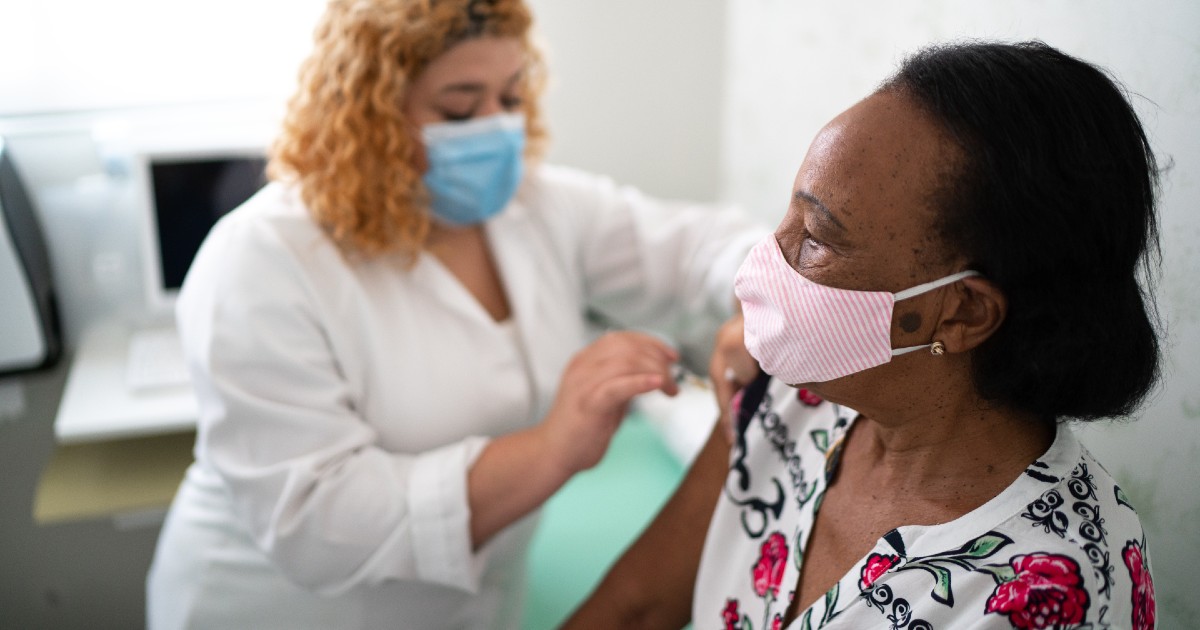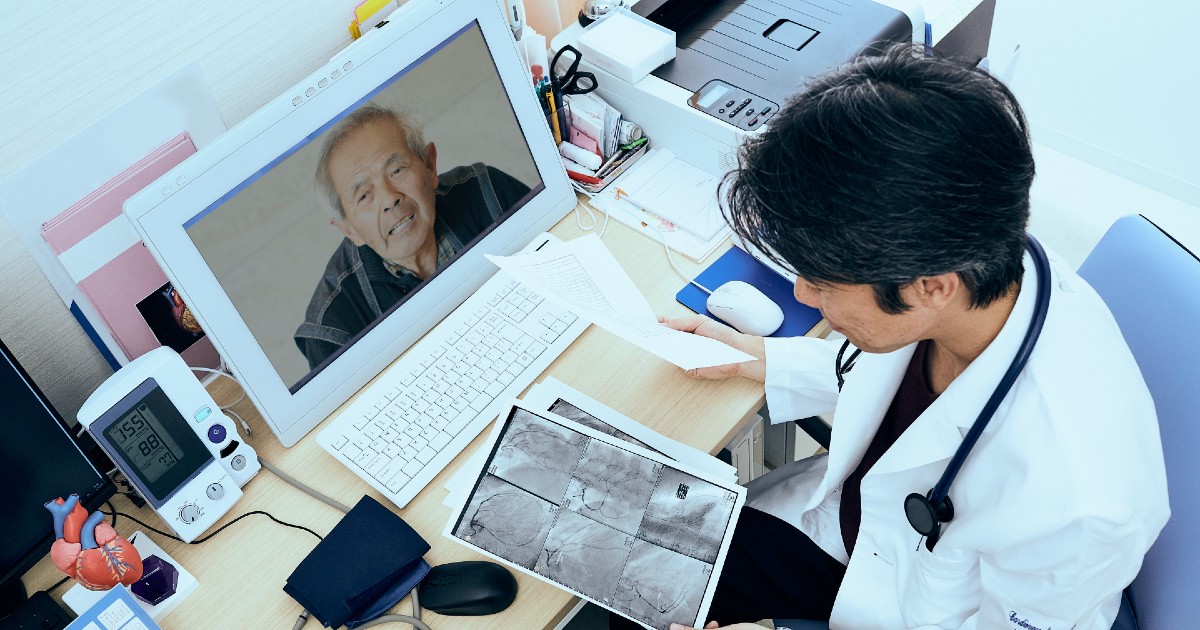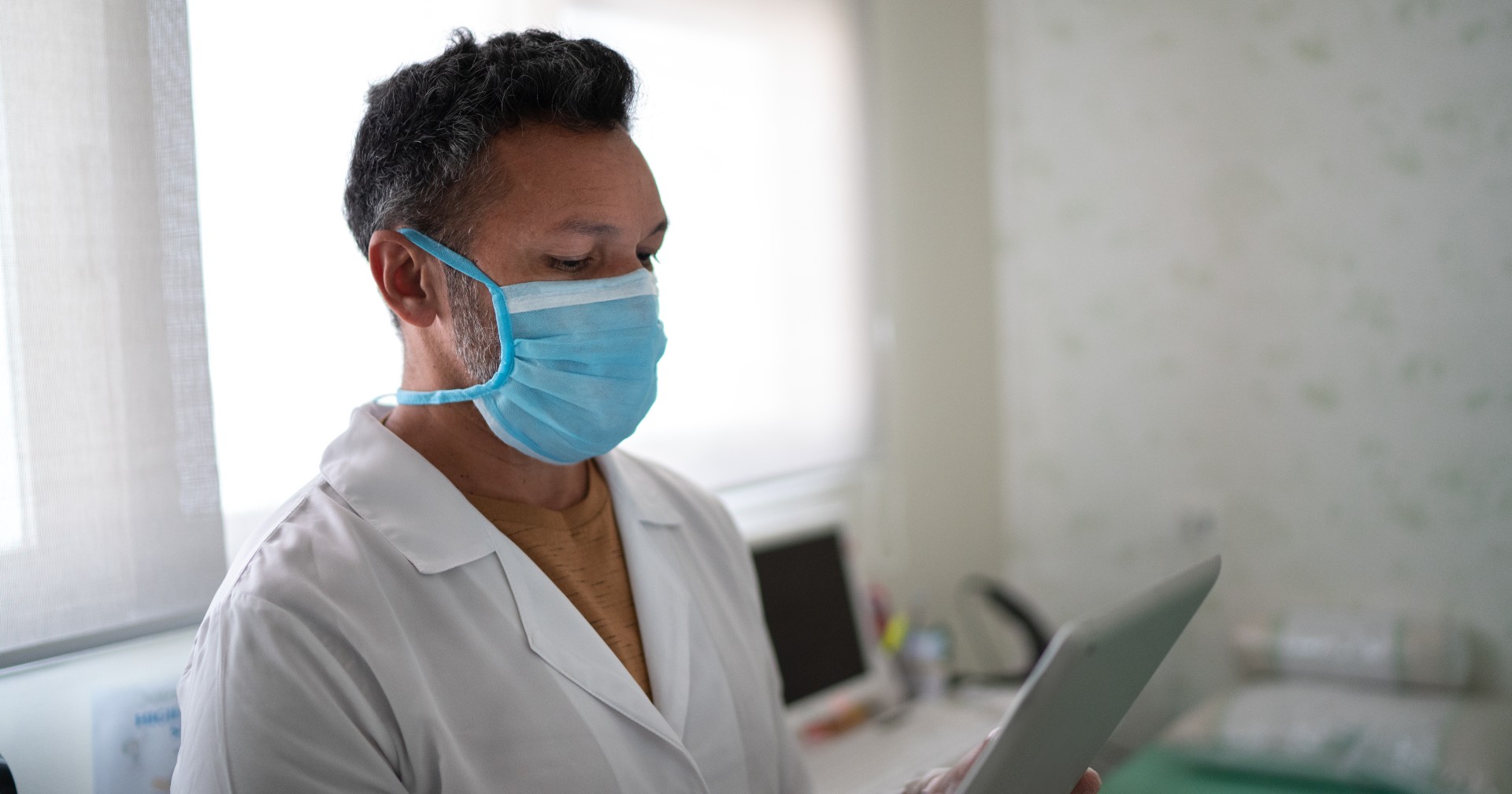Kat Jercich
A new SecureAge study found that 40% of employers said their current company had dealt with a cyberattack in the past – yet many faced hurdles to implementing defense measures.
Although infections in fully vaccinated people are still quite rare, those with comorbidities are more likely to end up hospitalized.
A study from the University of Missouri found that virtual care reduced stress for residents and increased access to services. It also worsened social isolation and caused confusion among some patients.
A paper published in the Journal of the American Medical Informatics Association noted that EHRs often misclassify American Sign Language as an "other" language, leading to data quality issues.
White House officials testified this past week that they have seen a "discernible decrease" in U.S.-targeted cyberattacks linked to Russia.
As reported by The Hill, Chris Inglis, the country's first national cyber director, told the House Homeland Security Committee that it was too soon to tell why the number of incidents had lessened.
"It may well be that the transgressors in this space have simply lain low in understanding that this is for the moment a very hot time for them, and we need to ensure that that continues to be the case," said Inglis.
"I think in the longer term, we will be able to measure in a qualitative and a quantitative fashion what the diminishment of those efforts are," he added.
Inglis emphasized the importance of staying the course when it comes to cyber defenses, saying that the United States needs to "ensure that our strategy is solidified and brought to bear."
Inglis' remarks prefaced news that the Department of Justice had charged two individuals for deploying Russia-linked REvil ransomware against U.S. targets.
EHR vendor reports security breach
QRS, Inc. has begun notifying individuals of a cyberattack that involved the personal information, including the health information, of some of its clients' patients.
QRS, a technology services company that offers electronic health record and practice management software, said in a notice on its website that it had discovered in August that one of its dedicated patient portal servers had been accessed.
After taking the server offline and investigating, QRS determined that the attacker had accessed the server between August 23 and 26.
During that time, the attacker may have acquired files containing individuals' name, address, date of birth, Social Security number, patient identification number, portal username, and/or medical treatment or diagnosis information.
According to the U.S. Department of Health and Human Services Office for Civil Rights Breach Portal, the incident affected 319,778 individuals.
"Although QRS is not aware of any identity theft or fraud to any person as a result of this incident, it is notifying the potentially affected patients on behalf of its clients to advise them about the steps QRS has taken to investigate the incident and provide them with guidance about monitoring their information," wrote the company on its site.
Philips flags security vulnerability in EMR systems
Philips has issued an advisory regarding a version of its TASY Electronic Medical Record HTML5 system.
According to the alert, Philips said it had identified two potential vulnerabilities in system versions 3.06.1803 and prior that may allow SQL injection under certain conditions.
"Should this occur, a successful SQL injection attack can result in confidential patient data being exposed or extracted from the TASY database," said the company.
"Attackers could gain unauthorized access to Tasy EMR systems or accounts and, ultimately may lead to a Denial of Service to the database," the advisory continued.
Philips advised affected customers to upgrade to versions 3.06.1804 or later, which are not subject to the vulnerabilities.
"At this time, Philips has received no reports of exploitation of these vulnerabilities or incidents from clinical use that we have been able to associate with this problem. Philips' analysis has shown that it is unlikely that this vulnerability would impact clinical use," said the vendor.
"Philips' analysis also indicates there is no expectation of patient hazard due to this issue," said the alert.
Kat Jercich is senior editor of Healthcare IT News.
Twitter: @kjercich
Email: kjercich@himss.org
Healthcare IT News is a HIMSS Media publication.
One of the accused, 22-year-old Yaroslav Vasinskyi, is reportedly suspected of attacking about 2,500 victims and raking in $2.3 million in ransom.
National Nurses United and the California Nurses Association released a joint statement this past week criticizing Kaiser Permanente's aims to expand advanced hospital services into patients' homes.
The unions accused the health system of trying to maximize profits and endangering patients, along with undermining the role of registered nurses in providing care.
"Nurses, more than any other healthcare staff, spend the most time with patients," said the unions in the statement.
"We reject Kaiser’s assertion that iPads, cameras, monitors, and the occasional visit by likely lesser-skilled and unlicensed personnel are in any way comparable to the skilled, expert nursing care and social emotional support we RNs provide every moment of every shift," they added.
"Nurses have always and will continue to play a critically important and highly valued role at Kaiser Permanente," said Kaiser representatives in response to a request for comment. "The Advanced Care at Home Program does not limit the role of nurses in hospitals."
"The Kaiser Permanente Advanced Care at Home is an innovative person-centered program rooted in quality, safety and patient satisfaction. Patients enrolled in the program must meet established clinical and safety criteria," the representatives continued.
"Regardless of whether the patients are receiving care in the comfort of their own home or in a hospital we hold ourselves to the same high standard of care. The program empowers multidisciplinary care teams to provide the right care at the right time while meeting our patients where they want to be," they added.
WHY IT MATTERS
In October, Kaiser – along with the Mayo Clinic and Medically Home – announced that it had launched a coalition aimed at creating a pathway to access at-home hospital-level services.
The systems noted the advantages of the model, saying it can be a safe, effective way to provide care to patients where they are. Patient satisfaction levels were high, said representatives in an interview with Healthcare IT News.
Mayo Clinic's Dr. Michael Maniaci also pointed to lower readmission rates and equivalent fall and infection rates among advanced care at home patients.
Kaiser is currently piloting the program at two sites in California, but intends to expand it system-wide, the NNU and CNA noted.
According to the unions, bringing hospital-level services outside a facility's walls robs patients of the benefits of being physically close to other specialized departments, units and equipment.
"Nurses know that our patients can be fragile and their condition can deteriorate quickly and unexpectedly. We are appalled by the idea that our patients could be stranded at home in case of an emergency or adverse event, with no way to get immediate help or medical intervention and treatment," said the statement.
The unions also said they were skeptical of reported patient outcomes given the size of the pilot programs and the studies, and accused Kaiser and other hospital systems of treating the model as a "gold mine."
They flagged the danger of shifting care onto laypeople, especially women, and raised concerns about the potential of such initiatives to exacerbate racial disparities.
"The industry will accuse registered nurses of opposing this and similar programs because we simply want to 'keep our jobs,'" read the statement.
"That’s exactly right. Hospital nurses do want to keep our jobs because we know our profession serves a critical role in our society: We are highly educated, knowledgeable, and skilled professionals who care for the sickest of the sick with our healing touch. We practice the art and science of nursing and all patients must have equal access to our care," it continued.
THE LARGER TREND
Amidst the COVID-19 pandemic, Kaiser has shifted more resources and strategy toward expanding beyond a brick-and-mortar health-system model.
In addition to its investment in Medically Home Group, the health system also launched a "virtual-first" health plan in Washington this past year aimed at centering telehealth as a foundational modality of care.
But the system, and other stakeholders wishing to expand virtual services, face potential hurdles in Congress and at federal agencies. When the public health emergency ends, so too will many telehealth regulatory flexibilities – which has advocates concerned.
ON THE RECORD
"Registered nurses are demanding that the hospital industry, the public, and private and government payers such as the Centers for Medicare and Medicaid Services abandon these plans to send home patients who should be admitted to hospitals," said the unions' statement.
"As a country, we need to invest in the proven health care infrastructure and RN workforce we know we need – and that our current COVID-19 pandemic painfully reconfirms we must have – to care for the nation’s patients," it continued.
Kat Jercich is senior editor of Healthcare IT News.
Twitter: @kjercich
Email: kjercich@himss.org
Healthcare IT News is a HIMSS Media publication.
Dr. David Carmouche will reportedly take on the role of senior vice president of Omnichannel Care Solutions starting November 29.
The mobile electronic health record company will join EverCommerce's suite of healthcare-focused tools.
In a preview of his panel at the HIMSS Cybersecurity Forum, Franciscan Health Vice President of Digital Innovation and Applications Sri Bharadwaj says threat factors have substantially increased amid COVID-19.










